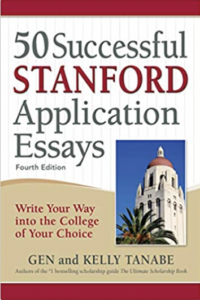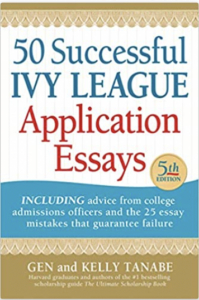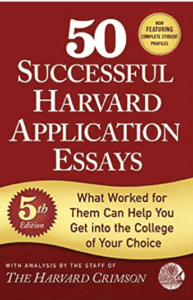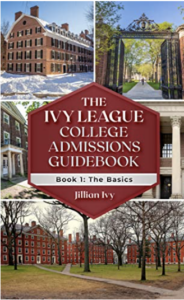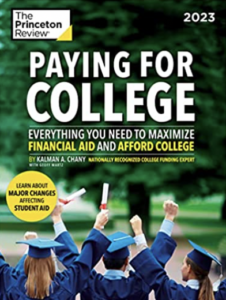How to Get Into an Ivy League College
How to Get Into an Ivy League College
Getting into an Ivy League college is a dream for many high school students and their families. The eight Ivy League institutions—Harvard, Yale, Princeton, Columbia, Brown, Dartmouth, Cornell, and the University of Pennsylvania—are renowned for their academic rigor, distinguished faculty, and expansive alumni networks. However, the path to these esteemed universities is highly competitive and requires meticulous planning, dedication, and a well-rounded profile. Here’s a comprehensive guide on how to maximize your chances of being accepted into an Ivy League school, as told from a former Harvard admissions interviewer and Harvard graduate:
-
Academic Excellence
High GPA: One of the most critical components of your application is your academic record. Ivy League schools typically look for students with near-perfect GPAs. Strive to be at the top of your class, as your grades reflect your ability to handle rigorous coursework.
Challenging Courses: Admissions committees look for students who have challenged themselves academically. Enroll in Advanced Placement (AP), International Baccalaureate (IB), or honors courses if they are available at your school. These courses not only prepare you for college-level work but also demonstrate your willingness to take on academic challenges.
Standardized Tests: Although some Ivy League schools have adopted test-optional policies, high scores on the SAT or ACT can still strengthen your application. Aim for scores in the 95th percentile or higher. Additionally, consider taking SAT Subject Tests in areas where you excel to further showcase your strengths.
-
Extracurricular Activities
Depth and Leadership: Admissions officers are interested in students who show depth and leadership in their extracurricular activities. Rather than participating in numerous activities superficially, focus on a few that genuinely interest you and pursue them passionately. Leadership roles in clubs, sports teams, or other organizations can demonstrate your ability to lead and make an impact.
Passion Projects: Develop personal projects or initiatives that highlight your interests and passions. Whether it’s starting a nonprofit, conducting scientific research, or creating a community service project, initiatives that show initiative and dedication can set you apart from other applicants.
Community Service: Volunteering and community service can showcase your commitment to making a positive difference in society. Engage in meaningful community service activities and reflect on how these experiences have shaped your perspectives and goals.
-
Strong Personal Statements
Unique Story: Your personal statement is an opportunity to present yourself beyond grades and test scores. Write essays that reflect your unique experiences, perspectives, and aspirations. Be authentic and honest in your writing, and avoid clichés or generic statements.
Specificity: Tailor your essays to each Ivy League school you apply to. Research each university’s programs, values, and culture, and explain why you are a good fit for their community. Specificity shows that you have done your homework and are genuinely interested in the school.
- Impressive Letters of Recommendation
Choose Wisely: Select teachers and mentors who know you well and can speak to your strengths and character. Ideally, these should be individuals who have witnessed your academic achievements and personal growth.
Detailed and Insightful: Strong letters of recommendation should provide specific examples of your accomplishments, work ethic, and personality. Ensure your recommenders have ample time to write thoughtful and detailed letters.
-
Exceptional Interviews
Preparation: If offered an interview, prepare thoroughly. Research the school and be ready to discuss why you want to attend and how you can contribute to the campus community. Practice common interview questions and answers with a friend or family member.
Be Yourself: During the interview, be genuine and personable. Admissions officers want to get to know the real you, so let your personality shine through.
-
Showcase Your Talents
Portfolios and Auditions: If you have exceptional talents in areas such as art, music, theater, or athletics, consider submitting a portfolio or audition tape. These can provide a tangible demonstration of your skills and dedication.
-
Financial Aid and Scholarships
Research Opportunities: Ivy League schools offer generous financial aid packages based on need. Research each school’s financial aid policies and apply for scholarships and grants. Demonstrating financial need will not negatively impact your chances of admission, as these schools are committed to meeting 100% of demonstrated need.
-
Stay Organized
Deadlines: Keep track of application deadlines and requirements for each school. Missing a deadline or failing to submit a required document can jeopardize your application.
Application Materials: Create a checklist of all application materials, including transcripts, test scores, essays, and recommendation letters. Ensure everything is submitted on time and in the correct format.
Conclusion
The journey to an Ivy League school is demanding but achievable with careful planning, hard work, and dedication. Focus on excelling academically, engaging deeply in extracurricular activities, and presenting a compelling and authentic personal narrative. Remember that while Ivy League schools are prestigious, they are not the only path to success. Many other universities offer excellent education and opportunities. Ultimately, finding a school that fits your goals and values is the most important factor in your college journey.
Would you like more help with your college applications? I’m a former Harvard admissions interviewer + a Harvard graduate and specialize in the Ivy League!
Contact me today at: www.IvyCollegeEssay.com for a free consultation and get into the school of your dreams!
If you like this article, check out my other Ivy League college admissions posts as well, such as:
- The Best Pre-Law Colleges in the US
- The Best Computer Science Colleges in the US
- How to Pick a College Major
- The Best Colleges for Psychology Majors
- The Best Engineering Colleges in the US
And you can also buy my new book on Amazon: THE IVY LEAGUE COLLEGE ADMISSIONS GUIDEBOOK: https://amzn.to/3UKaCEN





